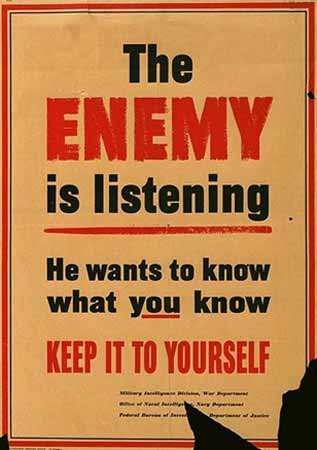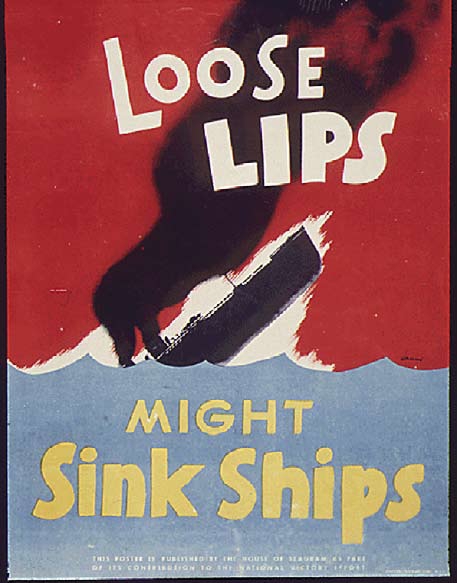I Have Something to Tell You, Part II
The kind of negotiation I advocate is a style where information needs to be shared because you’re not talking with the other person about the thing you want, you’re talking about why you want what you want.
I believe that negotiations are essentially problem solving events, and, as such, it’s more important to know all the factors contributing to the problem than it is to know exactly what you want the fix to be.
But let’s be real: if you approached every negotiation in this holistic, self aware, open manner you’d never do anything but negotiate.
You would never be able to go to another yard sale because it would mean sitting on a stranger’s front lawn explaining how your mother had a pie tin like that when you were growing up and when you were 11 you made your first pie (blackberry) in that pie tin and nearly set the house on fire but your best friend (Jane) had the presence of mind to blame it on your younger brother (Sam), for which he’s never completely forgiven you, and his 40th birthday is coming up and it’d be a great present.
There is such a thing as over sharing.

Sharing your interests doesn’t mean sharing all of your interests all at once.
But how do you know how much is enough? How do you know what to share, when and how much?
Well, you read this blog. Duh.
And you know about what type of negotiation you’re having.
To oversimplify things, the bigger the stakes in the negotiation, the more information you’ll want to share.
I said OVERsimplify. Don’t stop reading. Keep with us.
Very basically: You want to share information when it will help get you things you want; you do not want to share information when it will not help you get things you want.
So, at the yard sale? Sharing that entire story of your childhood pie-making, brother-torturing, best-friend-having adventures won’t increase your likelihood of getting that pie tin. You might get a bit of a discount on the pie tin because of the story, but compared to the amount you have to share to get that discount, it’s not probably worth your time.
For instance, if every word in that story were worth a nickle, the story is worth $3.65 (73 words x $0.05). Let’s say the pie tin is $5 and the stranger agrees to give you $2 off because of the mother-best-friend-brother-pie thing.
That means that the pie tin actually cost you $6.65, not $3 ($5-$2+$3.65=$6.65).
Sharing a lot of information in this straight forward thing-for-money negotiation where there is no long term relationship at stake cost me more money than it saved.
****If that story = worth thing threw you, I’m talking not about actual money but the value sharing that information brings the negotiation; actions and words have value. Usually when we assign actions and words some sort of monetary worth, it’s easier for us to figure out how their value contributes or detracts from the deal. But, no, no one is actually going to give you $3.65 for telling a story at a yard sale.****
 Now let’s say that you’re negotiating a book contract with a publisher you’d like to work with. You’ve never worked with this particular publisher before but you’ve heard good things about them and you’d like to establish a long term relationship with this house. In addition to this manuscript, you have a nearly complete outline of another book and a graphic novel project you’re working on with a friend.
Now let’s say that you’re negotiating a book contract with a publisher you’d like to work with. You’ve never worked with this particular publisher before but you’ve heard good things about them and you’d like to establish a long term relationship with this house. In addition to this manuscript, you have a nearly complete outline of another book and a graphic novel project you’re working on with a friend.
What you don’t know: the publishing house you’re talking to really wants to get into graphic novels. They’ve done a few smaller graphic novel projects but they haven’t found the right work to push. They would like to do something with robot pirate monkeys (your project is about robot pirate monkeys). Also, the editor you’d be working with is a big fan of yours and has been stalking you on Live Journal since 2003.
The publishing house usually offers someone in your position $5,000 as an advance. Because the editor is such a fan, they’ve tacked on an extra $500 of “goodwill money.” An outline of a graphic novel like the one you’re working on is worth another $5,000 to them. That other book outline? Since they haven’t worked with you yet, it’s only worth about $500 to them right now. If this project went well, it could be worth $8,000. A long term relationship with this company is, you figure, worth about $10,000 to you.
Sharing nothing will net you $5,500. You may or may not have a longer relationship with this company but it’s unknown. (Advance #1 + goodwill money)
Sharing the graphic novel and your outline right now is $11,000. (Advance #1 + goodwill money +Advance #2 + Smaller Advance #3)
Sharing the graphic novel now and the outline once you’ve proven yourself? $28,500. (Advance #1 + goodwill money + Advance #2 + Larger Advance #3 + Long term relationship value)
Sharing nothing and being a real ass to your editor? That will cost you $5,000 ($5,000 + no goodwill money – $10,000 relationship value).
This is not a thing-for-money deal; all sorts of factors come into play and contribute potential value in this higher stakes deal. Sharing your interests helps to identify that value and gives you the opportunity to claim it. Not sharing your interests, or not seeking to understand their interests, severely limits the amount of value you can get out of the deal.
Understanding what kind of negotiation you’re engaged in can help you figure out how much information to share; it isn’t the end all be all for how to make those decisions, but it is a necessary factor in the rubric. If you aren’t thinking about what kind of negotiation you’re having when forming your strategy, you aren’t really strategizing.
Up next: in higher stakes negotiations, using your BATNA to help figure out what information to share & when.
Categories: Negotiation Strategy


